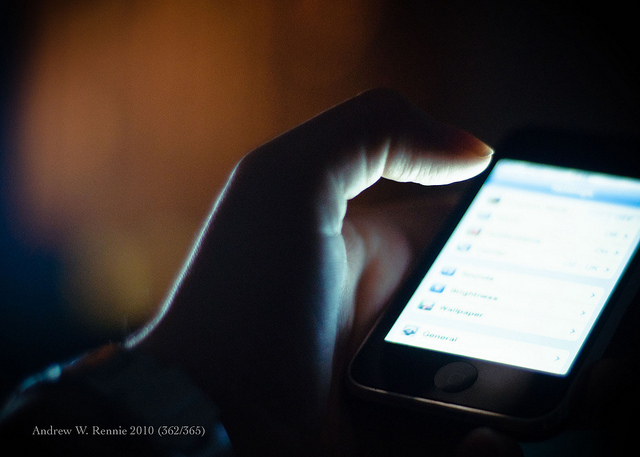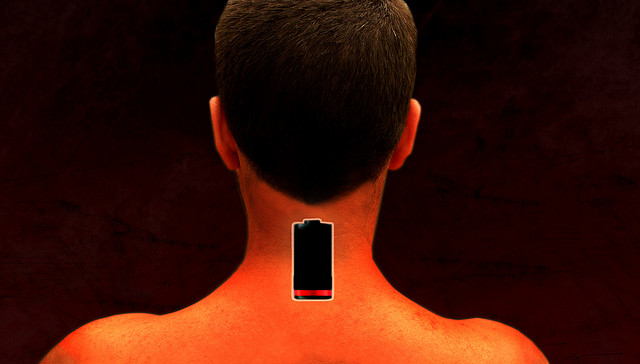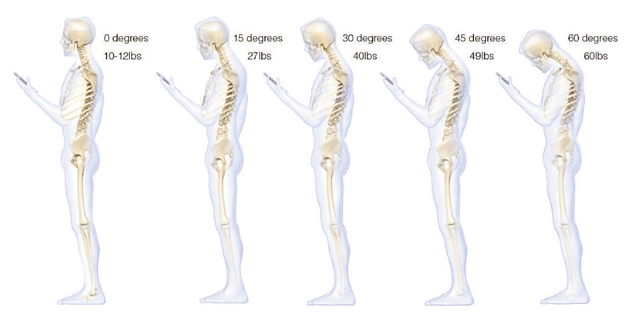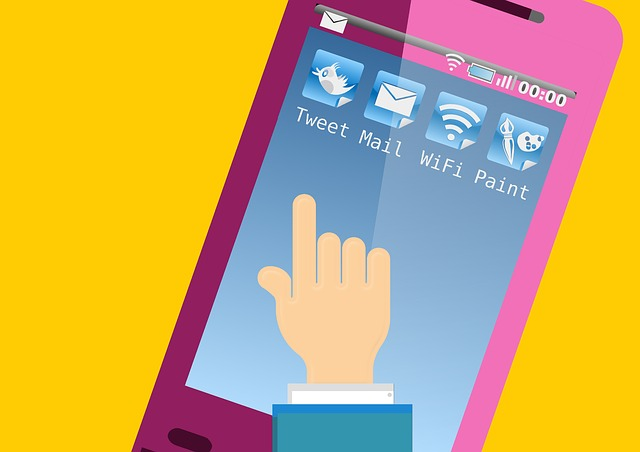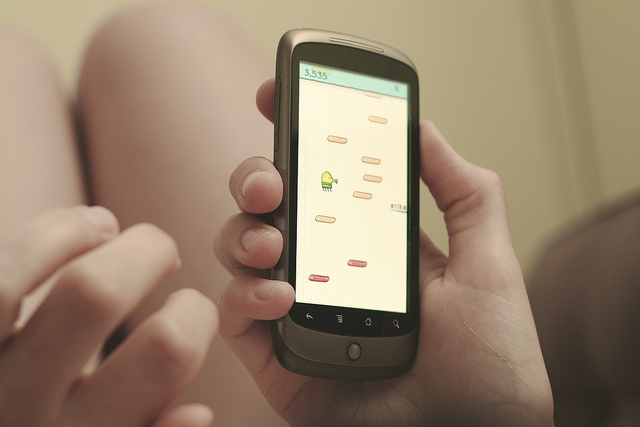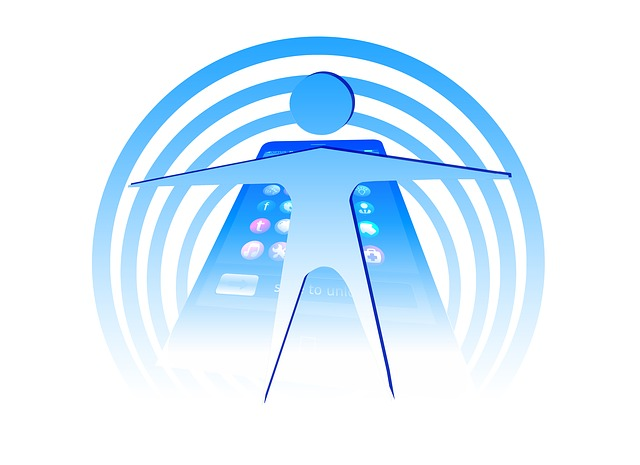On average, people pick up their smartphone 221 times a day to do things with it. It's no secret that we are getting more and more addicted to these handsets, but have you wondered what effect that is having on your mind and your body?
Scientists are definitely curious and have a few ideas about the ramifications of smartphone usage. You can measure your own smartphone usage to gather data about how often you check it, and then compare it with the smartphone addiction checklist to know if you have a problem.
Over the past few years, there have been plenty of studies citing how it helps and how it hurts the human being.
Smartphones Are Giving Your Fingers Superpowers
Touchscreens have meant that you use fingertips a lot more for interaction with objects. Apparently, that has translated into more brain activity every time an object now touches your fingertips, according to scientists at the University of Zurich.
Comparing smartphone users to those still on old phones, the researchers touched the tips of the thumb, index and middle fingers of several people and recorded their brain activity with an EEG. The researchers found that the electrical activity in the brains of smartphone users was enhanced when all three fingertips were touched, especially the thumb. And as the interval from when subjects last used a smartphone got shorter, the electrical activity in the brain got higher.
In a nutshell, your sensory perception of the world is being shaped by how often and when you last used a smartphone!
Your Phone Is Tricking You To Drain Your Energy
"Smartphones are almost perfectly designed to disrupt sleep," says Russell Johnson, Michigan State University's assistant professor of management. "Because they keep us mentally engaged late into the evening, they make it hard to detach from work so we can relax and fall asleep."
Johnson and his colleagues studied how people are using their smartphones after work hours, and found that after-hours usage cut into sleep time and left the user with less energy the next day. Plus, there is the added factor of your screen's blue light, which is the most disruptive of all colours of light and is known to hinder melatonin, a chemical in the body that promotes sleep. In fact, this is one of the ways Dave reckons smartphones are ruining your life.
However, the solution is not as simple as just turning the phone off, Johnson says. That might be impractical at various times, and it actually might be worth the trade-off of energy drain in some cases. Your best bet is getting more sleep, he says.
Looking Down At Your Phone Is Harming Your Neck
Just like using a computer for many hours strains your back, repetitive smartphone usage is wreaking havoc on your neck. But while there are ways to use a laptop in comfort, it's not so simple with "text neck."
New York-based spine surgeon Kenneth Hansraj says the degenerative condition is caused by tilting your head downwards to look at your phone. The tilting is putting undue strain on your neck and shoulders. The human head weighs about 12 pounds, and as the head tilts farther forward, the weight of the head on the cervical spine increases, up to 60 pounds, say experts at the University of Utah Orthopaedic Center.
Physical therapist Linda Vernon Scholl suggests two stretches that might help, but text neck is probably something we will be hearing more of in the future:
Shoulder blade squeeze: While in the desired posture, hold a "chin tuck" position and bring the shoulder blades together, as if you are trying to put the shoulder blade in the opposite back pocket. Hold for 10 seconds. Repeat two or three times after looking at your phone for more than 10 minutes.
Chest stretch: Putting your arms in a doorway, pushing your chest forward to stretch your shoulders and chest. This works to lengthen the muscles being shortened by smartphone use.
While you're at it, you might want to try apps that curb your smartphone addiction.
You Feel Obligated To Check Your Phone, Leading To Stress And Unhappiness
A survey of 500 university students found that frequent smartphone usage is directly related to anxiety, happiness, and academic performance. And none of it in a good way.
Kent State University researchers recorded daily mobile phone usage, a clinical measure of anxiety, academic performance charts, and levels of happiness. Once all the statistics were put together, Kent says they found that:
"...high frequency cell phone users tended to have lower GPA, higher anxiety, and lower satisfaction with life (happiness) relative to their peers who used the cell phone less often. The statistical model illustrating these relationships was highly significant."
In a different study by the same researchers, high-frequency users reportedly felt uptight, stressed, and anxious during their leisure time. "In our previously published research, we found that high-frequency cell phone users often described feeling obligated to remain constantly connected to their phones," said co-researcher Jacob Barkley. "This obligation was described as stressful, and the present study suggests the stress may be spilling over into their leisure."
The researchers think it's advisable to disconnect from your smartphone for short periods of time so that leisure time is more beneficial. Akshata has some other great tips to keep digitally induced stress at bay.
Short Smartphone Breaks Are Good For Your Work
While most of these studies seem to suggest putting that phone away, it's actually beneficial if you use it right. Most productivity experts recommend taking short breaks, like in the famous Pomodoro technique. You'll be glad to know that scientists say using your phone in those breaks is a good thing.
"By interacting with friends or family members through a smartphone or by playing a short game, we found that employees can recover from some of their stress to refresh their minds and take a break," says Sooyeol Kim, a psychology student who led the research at Kent State University.
Kim's study shows that employees spend only an average of 22 minutes out of an 8-hour work day on their smartphone, so encouraging these short breaks is in the company's interest. Plus, employees who took these breaks were also happier at the end of the work day.
The Good News: Forget About Cancer, Low Fertility
There are two prevailing notions around mobile phone usage. First, that the radiation in phones can cause cancer, especially in the head and neck area. Second, that the low-level electromagnetic fields reduce male fertility. Well, it's time to debunk both these myths.
After studying the effects of mobile phones on people who have used them for 20 years, analyzing data of cancer cases in those years and before it, and accounting for several factors to ensure that the uncertainty is as low as it can be, scientists have said that smartphones can't cause any of these health problems. Here's an excerpt from the study by the Norwegian Institute of Public Health:
The group found no evidence that the low-level fields around mobile phones and other transmitters increase the risk of cancer, impair male fertility, cause other reproductive damage or lead to other diseases and adverse health effects, such as changes to the endocrine and immune systems.
Are You Worried About Your Smartphone's Effects?
All of the information here is what the best scientific minds know as of January 2015. But things change, new discoveries are made over time. Right now, what worries you about how your smartphone is going to affect your mind or body?
Image credits: Andy Rennie, B Rosen, m01229, Kenneth Hansraj, Johan Larsson, geralt, geralt (2), Jeshoots


